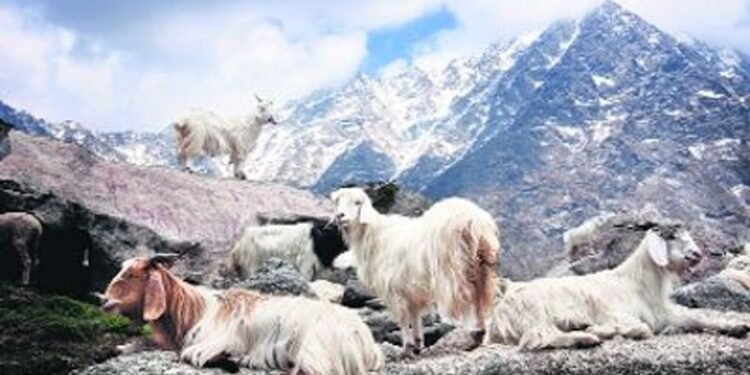Leh, August 2, 2025 : For Ladakh, Pashmina wool is more than a luxury commodity — it is a symbol of cultural pride and a key driver of the region’s rural economy.
Despite being the only region in India that produces this premium wool, Ladakh’s people are still striving for full recognition of its origin. Supporting this cause is the All Changthang Pashmina Growers Cooperative Marketing Society, which has been championing the interests of nomadic herders since 1995.
The cooperative began procuring raw wool from herders in 2004 and now processes it into high-grade Pashmina at its Leh-based facility. “Our goal is to ensure fair and profitable prices for this unique Changthang product. Sustaining this work for decades shows its impact,” said the cooperative’s General Secretary, Thinless Nurboo.
Pashmina is mainly sourced from two pockets in Ladakh, with Changthang being the largest. The cooperative gathers wool from over 600 families across the region. Global luxury brands and local weavers alike procure refined Pashmina from this society. Among its major international clients is Italian fashion house Brunello Cucinelli, which also supports the region’s nomadic culture.
Last year, the cooperative procured 17 metric tonnes of raw wool. Grade A wool fetched ₹4,600 per kg, while Grade B was priced slightly lower. Around 250–300 grams of refined wool is produced from every kilogram of raw Pashmina, with the processed version sold at ₹18,000 per kg.
The cooperative ensures that the previous year’s buying price becomes the current year’s baseline for herders. It also factors in a 5–7% market rate hike for refined wool pricing. “Any profit earned is returned to the goat herders,” Nurboo added.
Beyond wool sales, the cooperative supports herders with essentials like goat feed and tents. The government has also stepped in, offering land, infrastructure, and manpower for the processing unit. While Geographical Indication (GI) certification has been secured, some procedural formalities are still ongoing.
With continued support, Ladakh’s Pashmina hopes to earn not just global acclaim but rightful recognition of its roots.



















